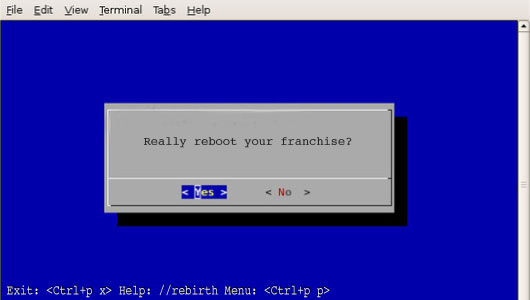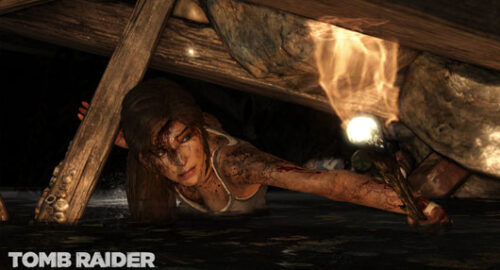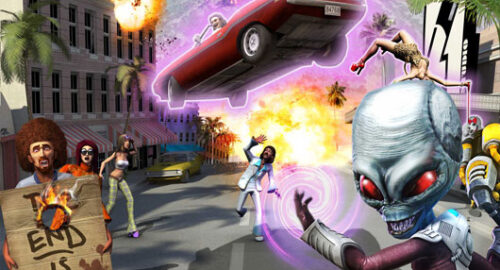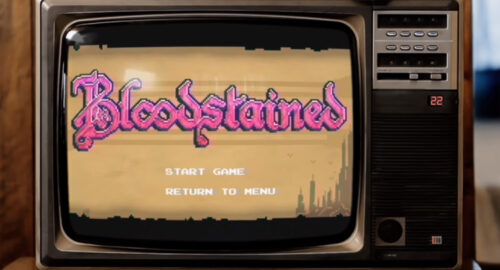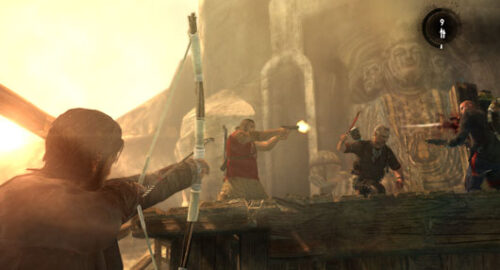Strolling around the floor of this year’s Eurogamer Expo, I noticed just how many of the major titles on display are relaunches or rebirths of established franchises which in many cases are made by entirely new developers.
I use the word “rebirth” as it seems like a much more accurate description than a “reboot”. The word reboot is used as it comes from computer terminology to define the shutting down and restarting of a system. That may be an accurate description in cases such as last year’s relaunch of the Mortal Kombat franchise, given that Midway — the original company that published the game — went out of business and that the game’s story went back to it’s roots. Even then, given that it’s definition is; a revival or the action of reappearing after a decline — is rebirth still not more apt? I would argue that very few games are technically rebooted, most are just reborn.
The phrase “reboot” should be reserved for occasions where something has been shut down and restarted. Cases such as the Oddworld series being a prime example, where the studio went out of existence. People lost their jobs and planned sequels were abandoned. A remake of Oddworld: Abe’s Oddysee is currently underway making use of new technology. Having deliberately backed away from using the phrase HD in their title to avoid the association with merely up-rezzing, Stuart Gilray explained; “We’re starting from nothing and rebuilding an entire game from scratch” Now that’s a reboot! Or not…Lorne Lanning, owner of Oddworld Inhabitants Inc., said in his Eurogamer Expo presentation; “It’s a whole rebirth from ground zero. Abe in 3D.”
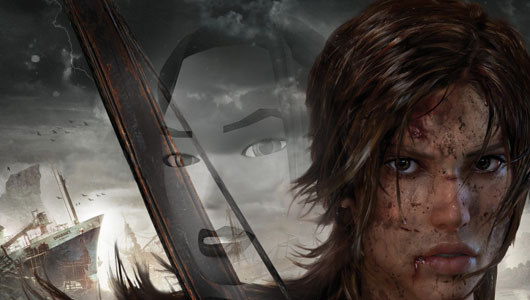
When it comes to the upcoming launch of the new Tomb Raider this could possibly be described either way. The original developers were superseded by Crystal Dynamics and more recently the publishers changed from Eidos to their now parent company of SquareEnix. There has been a five year gap since the last retail release with Ms. Croft at the helm. As we are journeying back to where it all started for Lara, the game could be described as a prequel, but the fact that there is a little more going on here is, probably deliberately, implied by the title – Tomb Raider(: No Subtitle). We are going back to a time before subtitles. Before Underworld, Anniversaries and Legends. To a time before Angel of Darkness or Last Revelations. Back to basics. Back to the beginning. Back to the origin of how it all started…Oh yeah, and it may have started differently to how you were told it started previously. A rebirth is a less of a remake and more a reimagining.
A rebirth is also different to a sequel or prequel, where you are looking to build on an existing storyline and often looking to bolt on some new gameplay features to the existing mechanics of a game. A rebirth bares close resemblance to a spin-off, but again differs slightly. Spin-offs are often produced by an external developer, and tend to take the view of a secondary character or take the approach of employing a different genre of gameplay. There were quite a few examples of high profile spin-offs at the Expo, such as Metal Gear Rising: Revengeance, Gears of War: Judgement, the Kinect controlled Fable: The Journey or with the likes of F1 Race Stars being a spin-off of the main F1 licence. A spin-off is a chance to venture down an alternate path, whereas a rebirth is a chance to press reset, to go back to where it all began and start anew.
Probably due to some controversial visual design choices, one of the current high profile examples of a rebirth would be the re-imagining of Devil May Cry. DMC has joined the growing trend of traditionally (or historically) Japanese produced games, now being produced either by or in conjunction with Western developers. In the case of DMC, this is being carried out by Ninja Theory, developers of previous titles such as Enslaved or Heavenly Sword. The rebirth of Castlevania was recently handled on consoles by Spanish based developer, Mercury Steam, with a 3DS sequel in currently in development. Castlevania: Lord of Shadow looked to capture the essence of the original games, but the new technology introduced also shifted the gameplay focus with the exploratory platforming elements taking more of a back seat to the hack’n’slash combat and the puzzle solving elements. The Castlevania series has often bounced between console and handheld Nintendo formats and has had a number of sequels and reboots over the years. The re-release of Castlevania: The Adventure on Wii Ware in 2009 had “rebirth” added to it’s title. It seems that Dracula just won’t stay dead!
Reboots or rebirths often go hand-in-hand with new technology launches and the upcoming Wii U is no exception. Frequently, when Mario embraces new hardware, the name of his game reflects this; Super Mario on the Super Nintendo, Mario 64 on the N64 and now Super Mario Bros. Wii U. It makes sense with Mario as his titles have, at least historically, often helped to define the technology and showcase what the platform (and platforming) is capable of. This arguably has become less relevant as technology has evolved passed the point where the platforming genre is enough of a technical showcase to demonstrate everything that a modern day gaming console can do, with online first person shooters often used in this regard during this generation.
New hardware launches help to draw a line in the sand and often encourage franchise rebirths. The extended console life cycle of the PS3 and Xbox 360 has led to a large number of developers blurring this line and choosing to revisit major franchises in the latter stages of this console generation, rather than holding out for new hardware. In a number of cases an entire trilogy can now be seen on one console generation. Lost Planet was almost a launch title for the Xbox 360. As far as the story goes, Lost Planet 3 is a prequel, but Lost Planet 2 was not as well received as Capcom had hoped. Given that a number of the gameplay mechanics have been scrapped or heavily refined, new developers Spark Unlimited may be better off rebranding the latest iteration as a rebirth to avoid the implications of making a directly numbered sequel. But then they might not want to draw too much attention to the developers given that their last game was (the not so) Legendary. Formally known as; Legendary: The Box. Perhaps if they had kept the subtitle, a successful franchise may have followed – but given the quality of the game, it seems somewhat unlikely. Legendary had little redeeming features, the Lost Planet franchise has an existing fanbase and some basic premises worth rescuing — but even that comes with it’s own difficulties, such as the weight of fan’s expectation.
Successful franchises gain the benefit of selling to an existing audience by trading on it’s brand recognition. Sequels can be more profitable than marketing a whole new intellectual property, but rebirths help to reduce the baggage of franchise fatigue and helps to turn the heads of any potential fans that have had disappointments with previous titles in the series.
Assassin’s Creed 3 is essentially a sequel and the fairly unique story component of having a common future day setting allows for a franchise wide story progression. Brotherhood and Revelations can be thought of as the direct sequels to Assassin’s Creed 2. With an all new protagonist, set in a different time period, in a different part of the world, perhaps AC3 should be considered a rebirth too. Even more so in the case of Halo 4, which was a numbered sequel in the franchise that has been previously filled with “1.5” named sequels, such as ODST and Reach or spin-offs such as Halo Wars. Halo 4 makes a new beginning of an all new trilogy made by 343 Industries, an all new development studio put together specifically for the purpose of rebirthing Master Chief back into the Halo universe.
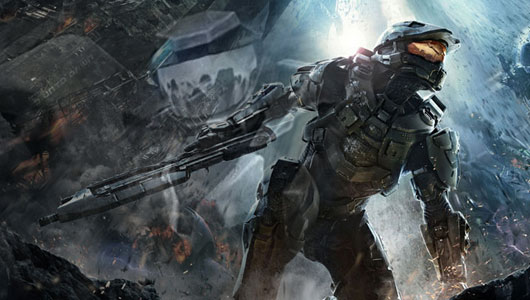
Many other major titles on show at the Eurogamer Expo further muddy the distinction of what is or isn’t a sequel, prequel, spin-off, reboot or rebirth. I would personally say that Hitman Absolution was a straight sequel, but is making some fairly major additions to the franchise with the inclusion of Instinct mode (a vision option similar to that seen in the Batman: Arkham series or as included in the most recent rebirth of Splinter Cell) and the addition of Contracts mode which features– current buzzword extraordinaire – asynchronous multiplayer. These additions may not be enough to class the game as a rebirth, but when coupled together with the advancements in technology in the seven year gap between games, it is likely that these differences will have a large impact on the gameplay. The previous Hitman title, Blood Money was a title that straddled two console generations with a version on the Xbox and Xbox 360. This is the first Hitman game build from the ground up for this generation of consoles and key gameplay elements such as crowd scenes are all the better for it.
The rebirths on display don’t end there. This week sees the rebirth of XCOM: Enemy Unknown and, much to the delight of fans of the game, is reborn in a remoulding of it’s original form and genre instead of the much maligned and further delayed FPS spin-off. Driving games don’t escape the fray with Carmageddon in the process of being violently reborn on iOS and Android devices, and a new console version of Need for Speed: Most Wanted due at the start of next month. This is perhaps one of the greatest examples of how a rebirth differs from a reboot. Need for Speed is a game that is well known for constantly reinventing itself. Every year it comes out with a new title in time for Christmas — and has gone on to expand into producing an entire alternative franchise in the form of the Shift series — Need for Speed is a franchise that reboots itself on an annual basis. Much like Criterion’s rebirth of Hot Pursuit in 2010, Most Wanted is an entirely new game, built on a different game engine, built by a different team, but is certainly looking to capture the essence of what made the previous title a success.
Rebirth might be a more accurate description in a large number of cases, but reboot is a widely used and accepted phrase. No matter how incorrectly used, it is unlikely to change anytime soon. Perhaps if this article can turn enough people off one phrase and turn them on to another, then it might not be too late for a terminology reboot…or rebirth.
Can we start again?
